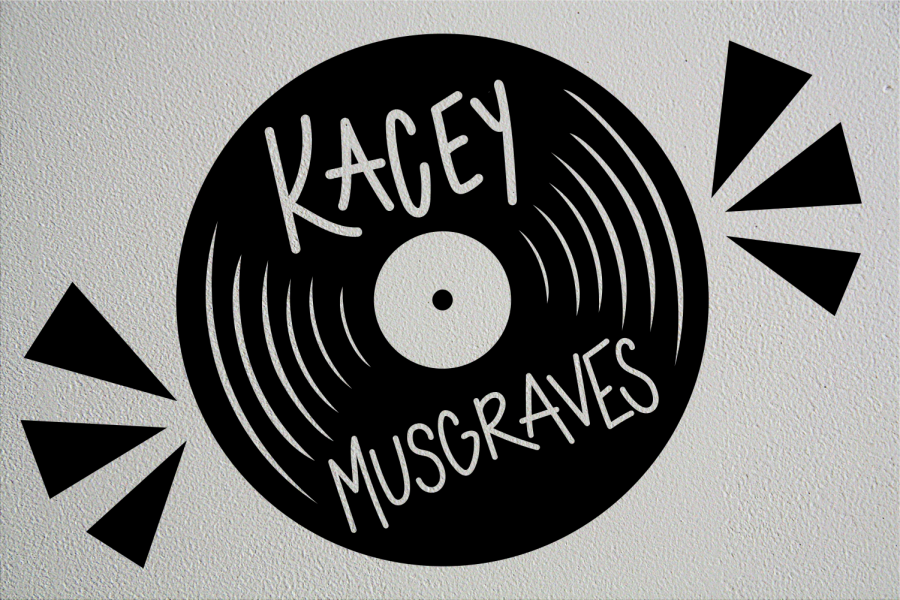While breakup albums soar to the top of the charts in modern music, divorce albums are few and far between.
Kacey Musgraves’ much-anticipated fifth studio album,“star-crossed,” deals intimately with her recent divorce from fellow country musician Ruston Kelly while continuing her signature push of country’s limits. Musicians have been merging country with pop since the days of Patsy Cline, but few have walked as fine a line as Musgraves. Her Grammy-winning 2018 crossover success, “Golden Hour,” won her legions of converted country fans. This is in part because of Musgraves’ liberal attitude in the media towards both gay rights and psychedelics but also because of her ability to blend elements from disparate genres in with her otherwise-reverent country style. With “Golden Hour,” Musgraves set herself apart from contemporaries with a winning amalgamation of influences including, but certainly not limited to, Glen Campbell’s “Rhinestone Cowboy” aesthetic, the Bee Gees’ strutting groove, Willie Nelson’s introspective songwriting and some subtle electro-pop elements akin to more recent artists like Lady Gaga or Rihanna. “star-crossed” draws from a similarly encyclopedic wealth of influences but to a more varied result.
Whereas “Golden Hour” found Musgraves in the peak honeymoon era of her marriage, “star-crossed” is an examination—or rather a retelling—of what went wrong. Leading up to the release of “star-crossed,” Musgraves has cited ancient Greek tragedies and Shakespearean plays as her influence for this concept album. “Golden Hour” producers Ian Fitchuk and Daniel Tashian once again bring their pop-leaning sensibilities, arguably pushing Musgraves’ music even further from her east Texas country roots. Musgraves’ music, however, does not exist on a simple spectrum of country to pop. Songs on “star-crossed” that sound more traditionally country often give way to Musgraves’ signature disco and electronic infusions. “good wife” starts out with guitars and soft cooing before the chorus welcomes bassline and autotune. A full transition from acoustic to psychedelic occurs in “if this was a movie..” right at the two minute mark when Musgraves’ vocals go subterranean. It feels like a spoiler to mention the flute solo in the penultimate track, “there is a light” even if the song barely ever sounds committed to country. The vice versa happens too, like on “easier said,” where things gradually cool off in favor of the final chorus. These surprises and turns are nothing new for Musgraves; tiny bursts of musical ingenuity were spotted throughout “Golden Hour.” The result here is still inventive, the aforementioned four songs are all enjoyable, but it becomes less consistent at times when those moments have more drama without the same thrill. The synths in the album’s title song/opener add to the spectacle, but it is not a revelation on par with the disco instrumentals in “Golden Hour.”
Comparing “Golden Hour” to “star-crossed” is both unavoidable and unfair. The former was a watershed moment for an entire genre; the latter is a continuation of that same experiment. “star-crossed” will surely rank as one of the best country divorce albums alongside other notable musicians, like Tammy Wynette’s 1968 classic “D-I-V-O-R-C-E” and fellow modern-day country outlaw, Miranda Lambert’s “The Weight of These Wings.” Musgraves’ sound is less jaw-dropping this time around, since audiences have heard it before; however, there is also no one else to hear it from. Even if she is no longer operating in her highest gear, her disco-inspired country music is still peerless. In the three years leading up to “star-crossed,” Musgraves has garnered plenty of imitators, country or otherwise. “star-crossed” proves she is still the only one who can deliver on her winning recipe of country pop.














